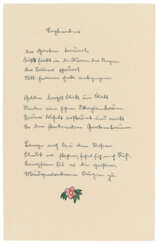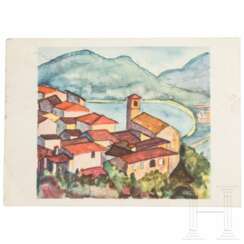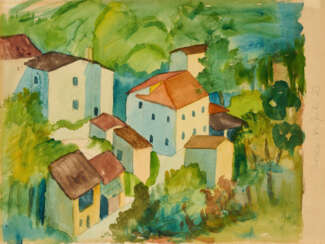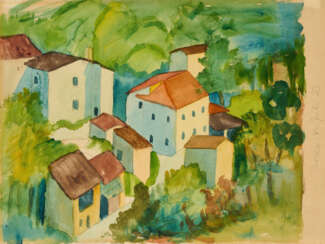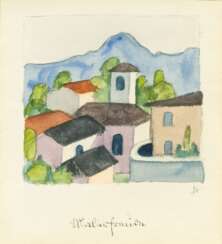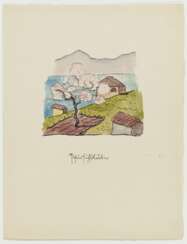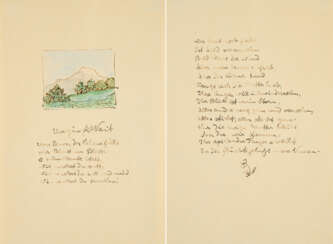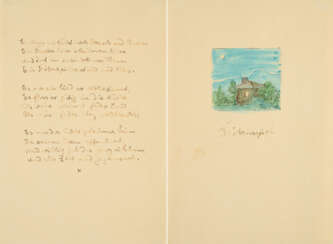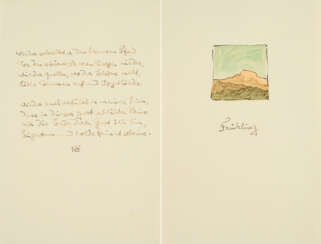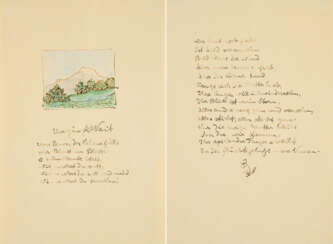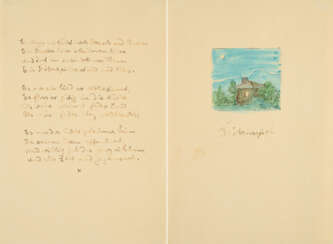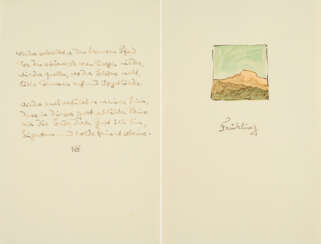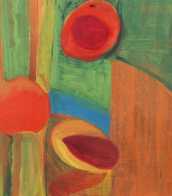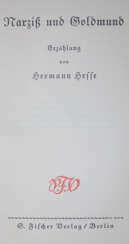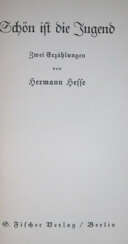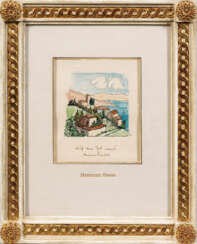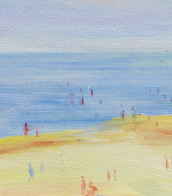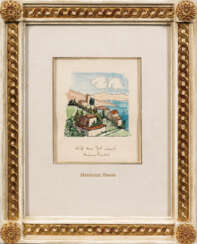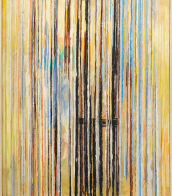hermann hesse (1877 - 1962)
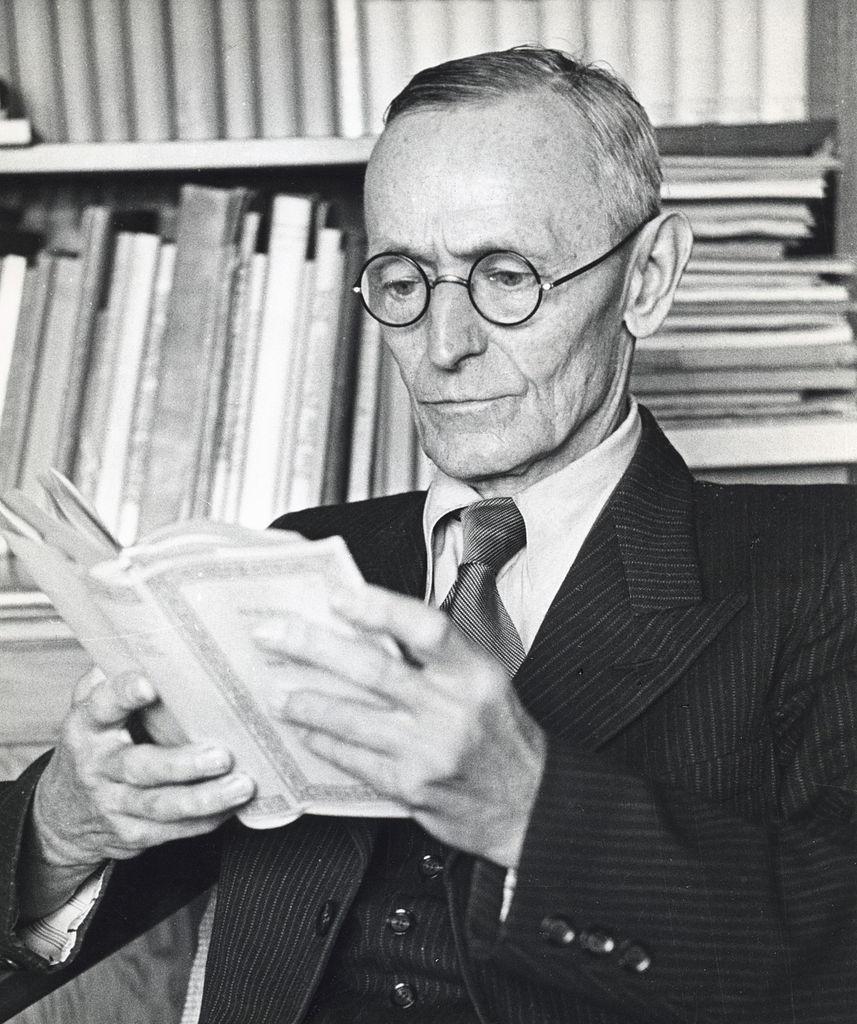
Hermann Karl Hesse was a German-Swiss poet, novelist, and painter, known for delving into themes of authenticity, self-knowledge, and spirituality. Born in Calw, Germany, Hesse's exploration of the individual's quest for truth won him the Nobel Prize for Literature in 1946. His storytelling weaves a rich tapestry of philosophical thought, evident in masterpieces like "Steppenwolf" and "Siddhartha," which resonate deeply with the human experience.
Renowned for his lyrical prose and profound insights into the human spirit, Hesse's works are a cornerstone of 20th-century literature. They challenge readers to seek beyond the confines of society and find a deeper sense of self. His narrative style combines simplicity with a deep philosophical undercurrent, inviting reflection and introspection.
Collectors and connoisseurs of literature hold Hesse's works in high esteem, not just for their literary merit but also for their cultural significance. For those interested in the evolution of literary thought and the pivotal role of introspective narratives, Hesse’s works are invaluable. Delve into his writings to discover the essence of early 20th-century philosophical literature and consider adding them to your collection for both their historic and artistic value.


Hermann Karl Hesse was a German-Swiss poet, novelist, and painter, known for delving into themes of authenticity, self-knowledge, and spirituality. Born in Calw, Germany, Hesse's exploration of the individual's quest for truth won him the Nobel Prize for Literature in 1946. His storytelling weaves a rich tapestry of philosophical thought, evident in masterpieces like "Steppenwolf" and "Siddhartha," which resonate deeply with the human experience.
Renowned for his lyrical prose and profound insights into the human spirit, Hesse's works are a cornerstone of 20th-century literature. They challenge readers to seek beyond the confines of society and find a deeper sense of self. His narrative style combines simplicity with a deep philosophical undercurrent, inviting reflection and introspection.
Collectors and connoisseurs of literature hold Hesse's works in high esteem, not just for their literary merit but also for their cultural significance. For those interested in the evolution of literary thought and the pivotal role of introspective narratives, Hesse’s works are invaluable. Delve into his writings to discover the essence of early 20th-century philosophical literature and consider adding them to your collection for both their historic and artistic value.


Hermann Karl Hesse was a German-Swiss poet, novelist, and painter, known for delving into themes of authenticity, self-knowledge, and spirituality. Born in Calw, Germany, Hesse's exploration of the individual's quest for truth won him the Nobel Prize for Literature in 1946. His storytelling weaves a rich tapestry of philosophical thought, evident in masterpieces like "Steppenwolf" and "Siddhartha," which resonate deeply with the human experience.
Renowned for his lyrical prose and profound insights into the human spirit, Hesse's works are a cornerstone of 20th-century literature. They challenge readers to seek beyond the confines of society and find a deeper sense of self. His narrative style combines simplicity with a deep philosophical undercurrent, inviting reflection and introspection.
Collectors and connoisseurs of literature hold Hesse's works in high esteem, not just for their literary merit but also for their cultural significance. For those interested in the evolution of literary thought and the pivotal role of introspective narratives, Hesse’s works are invaluable. Delve into his writings to discover the essence of early 20th-century philosophical literature and consider adding them to your collection for both their historic and artistic value.


Hermann Karl Hesse was a German-Swiss poet, novelist, and painter, known for delving into themes of authenticity, self-knowledge, and spirituality. Born in Calw, Germany, Hesse's exploration of the individual's quest for truth won him the Nobel Prize for Literature in 1946. His storytelling weaves a rich tapestry of philosophical thought, evident in masterpieces like "Steppenwolf" and "Siddhartha," which resonate deeply with the human experience.
Renowned for his lyrical prose and profound insights into the human spirit, Hesse's works are a cornerstone of 20th-century literature. They challenge readers to seek beyond the confines of society and find a deeper sense of self. His narrative style combines simplicity with a deep philosophical undercurrent, inviting reflection and introspection.
Collectors and connoisseurs of literature hold Hesse's works in high esteem, not just for their literary merit but also for their cultural significance. For those interested in the evolution of literary thought and the pivotal role of introspective narratives, Hesse’s works are invaluable. Delve into his writings to discover the essence of early 20th-century philosophical literature and consider adding them to your collection for both their historic and artistic value.


Hermann Karl Hesse was a German-Swiss poet, novelist, and painter, known for delving into themes of authenticity, self-knowledge, and spirituality. Born in Calw, Germany, Hesse's exploration of the individual's quest for truth won him the Nobel Prize for Literature in 1946. His storytelling weaves a rich tapestry of philosophical thought, evident in masterpieces like "Steppenwolf" and "Siddhartha," which resonate deeply with the human experience.
Renowned for his lyrical prose and profound insights into the human spirit, Hesse's works are a cornerstone of 20th-century literature. They challenge readers to seek beyond the confines of society and find a deeper sense of self. His narrative style combines simplicity with a deep philosophical undercurrent, inviting reflection and introspection.
Collectors and connoisseurs of literature hold Hesse's works in high esteem, not just for their literary merit but also for their cultural significance. For those interested in the evolution of literary thought and the pivotal role of introspective narratives, Hesse’s works are invaluable. Delve into his writings to discover the essence of early 20th-century philosophical literature and consider adding them to your collection for both their historic and artistic value.
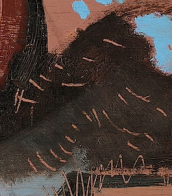

Hermann Karl Hesse was a German-Swiss poet, novelist, and painter, known for delving into themes of authenticity, self-knowledge, and spirituality. Born in Calw, Germany, Hesse's exploration of the individual's quest for truth won him the Nobel Prize for Literature in 1946. His storytelling weaves a rich tapestry of philosophical thought, evident in masterpieces like "Steppenwolf" and "Siddhartha," which resonate deeply with the human experience.
Renowned for his lyrical prose and profound insights into the human spirit, Hesse's works are a cornerstone of 20th-century literature. They challenge readers to seek beyond the confines of society and find a deeper sense of self. His narrative style combines simplicity with a deep philosophical undercurrent, inviting reflection and introspection.
Collectors and connoisseurs of literature hold Hesse's works in high esteem, not just for their literary merit but also for their cultural significance. For those interested in the evolution of literary thought and the pivotal role of introspective narratives, Hesse’s works are invaluable. Delve into his writings to discover the essence of early 20th-century philosophical literature and consider adding them to your collection for both their historic and artistic value.


Hermann Karl Hesse was a German-Swiss poet, novelist, and painter, known for delving into themes of authenticity, self-knowledge, and spirituality. Born in Calw, Germany, Hesse's exploration of the individual's quest for truth won him the Nobel Prize for Literature in 1946. His storytelling weaves a rich tapestry of philosophical thought, evident in masterpieces like "Steppenwolf" and "Siddhartha," which resonate deeply with the human experience.
Renowned for his lyrical prose and profound insights into the human spirit, Hesse's works are a cornerstone of 20th-century literature. They challenge readers to seek beyond the confines of society and find a deeper sense of self. His narrative style combines simplicity with a deep philosophical undercurrent, inviting reflection and introspection.
Collectors and connoisseurs of literature hold Hesse's works in high esteem, not just for their literary merit but also for their cultural significance. For those interested in the evolution of literary thought and the pivotal role of introspective narratives, Hesse’s works are invaluable. Delve into his writings to discover the essence of early 20th-century philosophical literature and consider adding them to your collection for both their historic and artistic value.
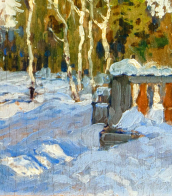

Hermann Karl Hesse was a German-Swiss poet, novelist, and painter, known for delving into themes of authenticity, self-knowledge, and spirituality. Born in Calw, Germany, Hesse's exploration of the individual's quest for truth won him the Nobel Prize for Literature in 1946. His storytelling weaves a rich tapestry of philosophical thought, evident in masterpieces like "Steppenwolf" and "Siddhartha," which resonate deeply with the human experience.
Renowned for his lyrical prose and profound insights into the human spirit, Hesse's works are a cornerstone of 20th-century literature. They challenge readers to seek beyond the confines of society and find a deeper sense of self. His narrative style combines simplicity with a deep philosophical undercurrent, inviting reflection and introspection.
Collectors and connoisseurs of literature hold Hesse's works in high esteem, not just for their literary merit but also for their cultural significance. For those interested in the evolution of literary thought and the pivotal role of introspective narratives, Hesse’s works are invaluable. Delve into his writings to discover the essence of early 20th-century philosophical literature and consider adding them to your collection for both their historic and artistic value.
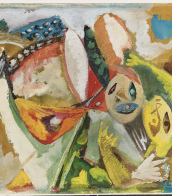

Hermann Karl Hesse was a German-Swiss poet, novelist, and painter, known for delving into themes of authenticity, self-knowledge, and spirituality. Born in Calw, Germany, Hesse's exploration of the individual's quest for truth won him the Nobel Prize for Literature in 1946. His storytelling weaves a rich tapestry of philosophical thought, evident in masterpieces like "Steppenwolf" and "Siddhartha," which resonate deeply with the human experience.
Renowned for his lyrical prose and profound insights into the human spirit, Hesse's works are a cornerstone of 20th-century literature. They challenge readers to seek beyond the confines of society and find a deeper sense of self. His narrative style combines simplicity with a deep philosophical undercurrent, inviting reflection and introspection.
Collectors and connoisseurs of literature hold Hesse's works in high esteem, not just for their literary merit but also for their cultural significance. For those interested in the evolution of literary thought and the pivotal role of introspective narratives, Hesse’s works are invaluable. Delve into his writings to discover the essence of early 20th-century philosophical literature and consider adding them to your collection for both their historic and artistic value.


Hermann Karl Hesse was a German-Swiss poet, novelist, and painter, known for delving into themes of authenticity, self-knowledge, and spirituality. Born in Calw, Germany, Hesse's exploration of the individual's quest for truth won him the Nobel Prize for Literature in 1946. His storytelling weaves a rich tapestry of philosophical thought, evident in masterpieces like "Steppenwolf" and "Siddhartha," which resonate deeply with the human experience.
Renowned for his lyrical prose and profound insights into the human spirit, Hesse's works are a cornerstone of 20th-century literature. They challenge readers to seek beyond the confines of society and find a deeper sense of self. His narrative style combines simplicity with a deep philosophical undercurrent, inviting reflection and introspection.
Collectors and connoisseurs of literature hold Hesse's works in high esteem, not just for their literary merit but also for their cultural significance. For those interested in the evolution of literary thought and the pivotal role of introspective narratives, Hesse’s works are invaluable. Delve into his writings to discover the essence of early 20th-century philosophical literature and consider adding them to your collection for both their historic and artistic value.


Hermann Karl Hesse was a German-Swiss poet, novelist, and painter, known for delving into themes of authenticity, self-knowledge, and spirituality. Born in Calw, Germany, Hesse's exploration of the individual's quest for truth won him the Nobel Prize for Literature in 1946. His storytelling weaves a rich tapestry of philosophical thought, evident in masterpieces like "Steppenwolf" and "Siddhartha," which resonate deeply with the human experience.
Renowned for his lyrical prose and profound insights into the human spirit, Hesse's works are a cornerstone of 20th-century literature. They challenge readers to seek beyond the confines of society and find a deeper sense of self. His narrative style combines simplicity with a deep philosophical undercurrent, inviting reflection and introspection.
Collectors and connoisseurs of literature hold Hesse's works in high esteem, not just for their literary merit but also for their cultural significance. For those interested in the evolution of literary thought and the pivotal role of introspective narratives, Hesse’s works are invaluable. Delve into his writings to discover the essence of early 20th-century philosophical literature and consider adding them to your collection for both their historic and artistic value.


Hermann Karl Hesse was a German-Swiss poet, novelist, and painter, known for delving into themes of authenticity, self-knowledge, and spirituality. Born in Calw, Germany, Hesse's exploration of the individual's quest for truth won him the Nobel Prize for Literature in 1946. His storytelling weaves a rich tapestry of philosophical thought, evident in masterpieces like "Steppenwolf" and "Siddhartha," which resonate deeply with the human experience.
Renowned for his lyrical prose and profound insights into the human spirit, Hesse's works are a cornerstone of 20th-century literature. They challenge readers to seek beyond the confines of society and find a deeper sense of self. His narrative style combines simplicity with a deep philosophical undercurrent, inviting reflection and introspection.
Collectors and connoisseurs of literature hold Hesse's works in high esteem, not just for their literary merit but also for their cultural significance. For those interested in the evolution of literary thought and the pivotal role of introspective narratives, Hesse’s works are invaluable. Delve into his writings to discover the essence of early 20th-century philosophical literature and consider adding them to your collection for both their historic and artistic value.


Hermann Karl Hesse was a German-Swiss poet, novelist, and painter, known for delving into themes of authenticity, self-knowledge, and spirituality. Born in Calw, Germany, Hesse's exploration of the individual's quest for truth won him the Nobel Prize for Literature in 1946. His storytelling weaves a rich tapestry of philosophical thought, evident in masterpieces like "Steppenwolf" and "Siddhartha," which resonate deeply with the human experience.
Renowned for his lyrical prose and profound insights into the human spirit, Hesse's works are a cornerstone of 20th-century literature. They challenge readers to seek beyond the confines of society and find a deeper sense of self. His narrative style combines simplicity with a deep philosophical undercurrent, inviting reflection and introspection.
Collectors and connoisseurs of literature hold Hesse's works in high esteem, not just for their literary merit but also for their cultural significance. For those interested in the evolution of literary thought and the pivotal role of introspective narratives, Hesse’s works are invaluable. Delve into his writings to discover the essence of early 20th-century philosophical literature and consider adding them to your collection for both their historic and artistic value.


Hermann Karl Hesse was a German-Swiss poet, novelist, and painter, known for delving into themes of authenticity, self-knowledge, and spirituality. Born in Calw, Germany, Hesse's exploration of the individual's quest for truth won him the Nobel Prize for Literature in 1946. His storytelling weaves a rich tapestry of philosophical thought, evident in masterpieces like "Steppenwolf" and "Siddhartha," which resonate deeply with the human experience.
Renowned for his lyrical prose and profound insights into the human spirit, Hesse's works are a cornerstone of 20th-century literature. They challenge readers to seek beyond the confines of society and find a deeper sense of self. His narrative style combines simplicity with a deep philosophical undercurrent, inviting reflection and introspection.
Collectors and connoisseurs of literature hold Hesse's works in high esteem, not just for their literary merit but also for their cultural significance. For those interested in the evolution of literary thought and the pivotal role of introspective narratives, Hesse’s works are invaluable. Delve into his writings to discover the essence of early 20th-century philosophical literature and consider adding them to your collection for both their historic and artistic value.


Hermann Karl Hesse was a German-Swiss poet, novelist, and painter, known for delving into themes of authenticity, self-knowledge, and spirituality. Born in Calw, Germany, Hesse's exploration of the individual's quest for truth won him the Nobel Prize for Literature in 1946. His storytelling weaves a rich tapestry of philosophical thought, evident in masterpieces like "Steppenwolf" and "Siddhartha," which resonate deeply with the human experience.
Renowned for his lyrical prose and profound insights into the human spirit, Hesse's works are a cornerstone of 20th-century literature. They challenge readers to seek beyond the confines of society and find a deeper sense of self. His narrative style combines simplicity with a deep philosophical undercurrent, inviting reflection and introspection.
Collectors and connoisseurs of literature hold Hesse's works in high esteem, not just for their literary merit but also for their cultural significance. For those interested in the evolution of literary thought and the pivotal role of introspective narratives, Hesse’s works are invaluable. Delve into his writings to discover the essence of early 20th-century philosophical literature and consider adding them to your collection for both their historic and artistic value.


Hermann Karl Hesse was a German-Swiss poet, novelist, and painter, known for delving into themes of authenticity, self-knowledge, and spirituality. Born in Calw, Germany, Hesse's exploration of the individual's quest for truth won him the Nobel Prize for Literature in 1946. His storytelling weaves a rich tapestry of philosophical thought, evident in masterpieces like "Steppenwolf" and "Siddhartha," which resonate deeply with the human experience.
Renowned for his lyrical prose and profound insights into the human spirit, Hesse's works are a cornerstone of 20th-century literature. They challenge readers to seek beyond the confines of society and find a deeper sense of self. His narrative style combines simplicity with a deep philosophical undercurrent, inviting reflection and introspection.
Collectors and connoisseurs of literature hold Hesse's works in high esteem, not just for their literary merit but also for their cultural significance. For those interested in the evolution of literary thought and the pivotal role of introspective narratives, Hesse’s works are invaluable. Delve into his writings to discover the essence of early 20th-century philosophical literature and consider adding them to your collection for both their historic and artistic value.
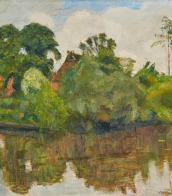

Hermann Karl Hesse was a German-Swiss poet, novelist, and painter, known for delving into themes of authenticity, self-knowledge, and spirituality. Born in Calw, Germany, Hesse's exploration of the individual's quest for truth won him the Nobel Prize for Literature in 1946. His storytelling weaves a rich tapestry of philosophical thought, evident in masterpieces like "Steppenwolf" and "Siddhartha," which resonate deeply with the human experience.
Renowned for his lyrical prose and profound insights into the human spirit, Hesse's works are a cornerstone of 20th-century literature. They challenge readers to seek beyond the confines of society and find a deeper sense of self. His narrative style combines simplicity with a deep philosophical undercurrent, inviting reflection and introspection.
Collectors and connoisseurs of literature hold Hesse's works in high esteem, not just for their literary merit but also for their cultural significance. For those interested in the evolution of literary thought and the pivotal role of introspective narratives, Hesse’s works are invaluable. Delve into his writings to discover the essence of early 20th-century philosophical literature and consider adding them to your collection for both their historic and artistic value.


Hermann Karl Hesse was a German-Swiss poet, novelist, and painter, known for delving into themes of authenticity, self-knowledge, and spirituality. Born in Calw, Germany, Hesse's exploration of the individual's quest for truth won him the Nobel Prize for Literature in 1946. His storytelling weaves a rich tapestry of philosophical thought, evident in masterpieces like "Steppenwolf" and "Siddhartha," which resonate deeply with the human experience.
Renowned for his lyrical prose and profound insights into the human spirit, Hesse's works are a cornerstone of 20th-century literature. They challenge readers to seek beyond the confines of society and find a deeper sense of self. His narrative style combines simplicity with a deep philosophical undercurrent, inviting reflection and introspection.
Collectors and connoisseurs of literature hold Hesse's works in high esteem, not just for their literary merit but also for their cultural significance. For those interested in the evolution of literary thought and the pivotal role of introspective narratives, Hesse’s works are invaluable. Delve into his writings to discover the essence of early 20th-century philosophical literature and consider adding them to your collection for both their historic and artistic value.
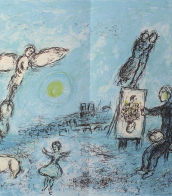

Hermann Karl Hesse was a German-Swiss poet, novelist, and painter, known for delving into themes of authenticity, self-knowledge, and spirituality. Born in Calw, Germany, Hesse's exploration of the individual's quest for truth won him the Nobel Prize for Literature in 1946. His storytelling weaves a rich tapestry of philosophical thought, evident in masterpieces like "Steppenwolf" and "Siddhartha," which resonate deeply with the human experience.
Renowned for his lyrical prose and profound insights into the human spirit, Hesse's works are a cornerstone of 20th-century literature. They challenge readers to seek beyond the confines of society and find a deeper sense of self. His narrative style combines simplicity with a deep philosophical undercurrent, inviting reflection and introspection.
Collectors and connoisseurs of literature hold Hesse's works in high esteem, not just for their literary merit but also for their cultural significance. For those interested in the evolution of literary thought and the pivotal role of introspective narratives, Hesse’s works are invaluable. Delve into his writings to discover the essence of early 20th-century philosophical literature and consider adding them to your collection for both their historic and artistic value.


Hermann Karl Hesse was a German-Swiss poet, novelist, and painter, known for delving into themes of authenticity, self-knowledge, and spirituality. Born in Calw, Germany, Hesse's exploration of the individual's quest for truth won him the Nobel Prize for Literature in 1946. His storytelling weaves a rich tapestry of philosophical thought, evident in masterpieces like "Steppenwolf" and "Siddhartha," which resonate deeply with the human experience.
Renowned for his lyrical prose and profound insights into the human spirit, Hesse's works are a cornerstone of 20th-century literature. They challenge readers to seek beyond the confines of society and find a deeper sense of self. His narrative style combines simplicity with a deep philosophical undercurrent, inviting reflection and introspection.
Collectors and connoisseurs of literature hold Hesse's works in high esteem, not just for their literary merit but also for their cultural significance. For those interested in the evolution of literary thought and the pivotal role of introspective narratives, Hesse’s works are invaluable. Delve into his writings to discover the essence of early 20th-century philosophical literature and consider adding them to your collection for both their historic and artistic value.


Hermann Karl Hesse was a German-Swiss poet, novelist, and painter, known for delving into themes of authenticity, self-knowledge, and spirituality. Born in Calw, Germany, Hesse's exploration of the individual's quest for truth won him the Nobel Prize for Literature in 1946. His storytelling weaves a rich tapestry of philosophical thought, evident in masterpieces like "Steppenwolf" and "Siddhartha," which resonate deeply with the human experience.
Renowned for his lyrical prose and profound insights into the human spirit, Hesse's works are a cornerstone of 20th-century literature. They challenge readers to seek beyond the confines of society and find a deeper sense of self. His narrative style combines simplicity with a deep philosophical undercurrent, inviting reflection and introspection.
Collectors and connoisseurs of literature hold Hesse's works in high esteem, not just for their literary merit but also for their cultural significance. For those interested in the evolution of literary thought and the pivotal role of introspective narratives, Hesse’s works are invaluable. Delve into his writings to discover the essence of early 20th-century philosophical literature and consider adding them to your collection for both their historic and artistic value.
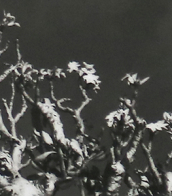

Hermann Karl Hesse was a German-Swiss poet, novelist, and painter, known for delving into themes of authenticity, self-knowledge, and spirituality. Born in Calw, Germany, Hesse's exploration of the individual's quest for truth won him the Nobel Prize for Literature in 1946. His storytelling weaves a rich tapestry of philosophical thought, evident in masterpieces like "Steppenwolf" and "Siddhartha," which resonate deeply with the human experience.
Renowned for his lyrical prose and profound insights into the human spirit, Hesse's works are a cornerstone of 20th-century literature. They challenge readers to seek beyond the confines of society and find a deeper sense of self. His narrative style combines simplicity with a deep philosophical undercurrent, inviting reflection and introspection.
Collectors and connoisseurs of literature hold Hesse's works in high esteem, not just for their literary merit but also for their cultural significance. For those interested in the evolution of literary thought and the pivotal role of introspective narratives, Hesse’s works are invaluable. Delve into his writings to discover the essence of early 20th-century philosophical literature and consider adding them to your collection for both their historic and artistic value.


Hermann Karl Hesse was a German-Swiss poet, novelist, and painter, known for delving into themes of authenticity, self-knowledge, and spirituality. Born in Calw, Germany, Hesse's exploration of the individual's quest for truth won him the Nobel Prize for Literature in 1946. His storytelling weaves a rich tapestry of philosophical thought, evident in masterpieces like "Steppenwolf" and "Siddhartha," which resonate deeply with the human experience.
Renowned for his lyrical prose and profound insights into the human spirit, Hesse's works are a cornerstone of 20th-century literature. They challenge readers to seek beyond the confines of society and find a deeper sense of self. His narrative style combines simplicity with a deep philosophical undercurrent, inviting reflection and introspection.
Collectors and connoisseurs of literature hold Hesse's works in high esteem, not just for their literary merit but also for their cultural significance. For those interested in the evolution of literary thought and the pivotal role of introspective narratives, Hesse’s works are invaluable. Delve into his writings to discover the essence of early 20th-century philosophical literature and consider adding them to your collection for both their historic and artistic value.


Hermann Karl Hesse was a German-Swiss poet, novelist, and painter, known for delving into themes of authenticity, self-knowledge, and spirituality. Born in Calw, Germany, Hesse's exploration of the individual's quest for truth won him the Nobel Prize for Literature in 1946. His storytelling weaves a rich tapestry of philosophical thought, evident in masterpieces like "Steppenwolf" and "Siddhartha," which resonate deeply with the human experience.
Renowned for his lyrical prose and profound insights into the human spirit, Hesse's works are a cornerstone of 20th-century literature. They challenge readers to seek beyond the confines of society and find a deeper sense of self. His narrative style combines simplicity with a deep philosophical undercurrent, inviting reflection and introspection.
Collectors and connoisseurs of literature hold Hesse's works in high esteem, not just for their literary merit but also for their cultural significance. For those interested in the evolution of literary thought and the pivotal role of introspective narratives, Hesse’s works are invaluable. Delve into his writings to discover the essence of early 20th-century philosophical literature and consider adding them to your collection for both their historic and artistic value.


Hermann Karl Hesse was a German-Swiss poet, novelist, and painter, known for delving into themes of authenticity, self-knowledge, and spirituality. Born in Calw, Germany, Hesse's exploration of the individual's quest for truth won him the Nobel Prize for Literature in 1946. His storytelling weaves a rich tapestry of philosophical thought, evident in masterpieces like "Steppenwolf" and "Siddhartha," which resonate deeply with the human experience.
Renowned for his lyrical prose and profound insights into the human spirit, Hesse's works are a cornerstone of 20th-century literature. They challenge readers to seek beyond the confines of society and find a deeper sense of self. His narrative style combines simplicity with a deep philosophical undercurrent, inviting reflection and introspection.
Collectors and connoisseurs of literature hold Hesse's works in high esteem, not just for their literary merit but also for their cultural significance. For those interested in the evolution of literary thought and the pivotal role of introspective narratives, Hesse’s works are invaluable. Delve into his writings to discover the essence of early 20th-century philosophical literature and consider adding them to your collection for both their historic and artistic value.
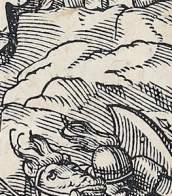

Hermann Karl Hesse was a German-Swiss poet, novelist, and painter, known for delving into themes of authenticity, self-knowledge, and spirituality. Born in Calw, Germany, Hesse's exploration of the individual's quest for truth won him the Nobel Prize for Literature in 1946. His storytelling weaves a rich tapestry of philosophical thought, evident in masterpieces like "Steppenwolf" and "Siddhartha," which resonate deeply with the human experience.
Renowned for his lyrical prose and profound insights into the human spirit, Hesse's works are a cornerstone of 20th-century literature. They challenge readers to seek beyond the confines of society and find a deeper sense of self. His narrative style combines simplicity with a deep philosophical undercurrent, inviting reflection and introspection.
Collectors and connoisseurs of literature hold Hesse's works in high esteem, not just for their literary merit but also for their cultural significance. For those interested in the evolution of literary thought and the pivotal role of introspective narratives, Hesse’s works are invaluable. Delve into his writings to discover the essence of early 20th-century philosophical literature and consider adding them to your collection for both their historic and artistic value.





